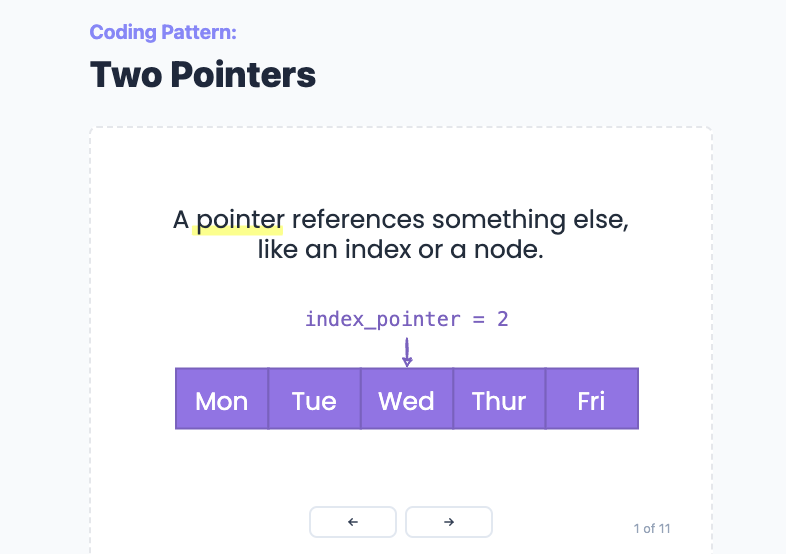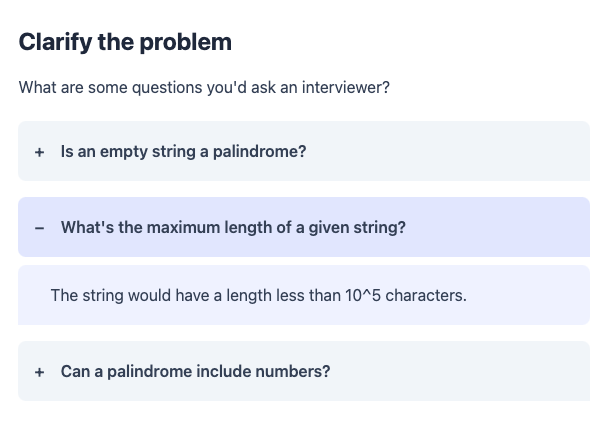6 Mistakes to Avoid when Preparing for Coding Interviews
5 minutesPreparing for interviews requires dedication and strategic planning. Unfortunately, many candidates make easily avoidable mistakes. Here are six pitfalls to avoid when preparing for programming interviews.
Table of contents
- 1 – Not putting in the time
- 2 - Memorizing answers
- 3 - Not practicing with a plan
- 4 - Not understanding your own plan before coding
- 5 - Refactoring the solution before finishing implementing it
- 6 - Not learning from mistakes
- Final thoughts
1 – Not putting in the time
It seems like an obvious pitfall to avoid, but you’d be surprised how many candidates make this mistake. If you’re serious about preparing for interviews, you need to put in the time. Some individuals choose not to invest the necessary time, but the reward makes it well worth the effort. Think about it this way, securing an offer can lead you to an average pay increase of $20,000 or even more, especially if competing offers are in play. Treat your interview preparation as an investment in your future. Besides, if you fail an interview, most companies will require you to wait for another 6 months before they consider your application again.
The amount of time needed to practice varies for different roles, but at least devote extra time to truly understand the starting easy problems for each topic in the InterviewCrunch tool. Subsequent problems use a similar pattern to solve, so they become easier once you’ve grasped the initial concept. Aim to get to a point where you can assess most problems quickly and efficiently. This could look like receiving and evaluating the problem and almost immediately being able to come up with 1-2 different approaches.

2 - Memorizing answers
Although it’s tempting to search up a company’s list of interview questions and memorize dozens of interview questions, this approach often leads to failure. Interviewers ask open-ended questions or nuanced follow-up questions to assess your problem-solving skills, so they’ll notice if you’re not able to explain your thought process well.
3 - Not practicing with a plan
If you’re just doing random Leetcode questions, you’ll likely overwhelm yourself and after struggling for the second or third question, you may become so demotivated that you’ll procrastinate from prepping until a couple days before the actual interview. This is why many candidates end up struggling during interviews — they didn’t prepare with a strategy. Each interview question can be systematically solved, so as long as you understand and can identify the general pattern of how to solve these problems, you’ll be able to work your way toward a functional solution in the context of that problem. This is exactly why InterviewCrunch was created, to help you learn the patterns of how to solve coding problems so you can strategically approach questions in a way that will allow you to articulate your reasoning well. InterviewCrunch groups problems with similar solutions together, so you can familiarize and practice the same approach with different questions.
4 - Not understanding your own plan before coding
When under the time pressure, some interviewees hastily dive into coding a solution without a thought-out plan. They end up making mistakes, wasting precious implementation time, and not completely providing a working solution. To avoid this, take the time to thoroughly understand the question by considering edge cases, identifying a simple input/output test case, and then explaining your approach as if you’re explaining it to a child. The solution should be simple to understand, so both you and your interviewer know what direction your solution will take. Verbalizing your approach will also allow you, or even your interviewer, to identify potential flaws in your solution. This is why, before writing the code, InterviewCrunch encourages you to think of potential clarifying questions as well as the output of an example test case.

5 - Refactoring the solution before finishing implementing it
It’s always best to first provide an explanation of a naive solution before thinking of a more optimal solution. If you’re not able to think of a more optimal approach, then take 5-10 minutes to write the naive solution so you at least have some working implementation. Once you begin to write your implementation, try not to focus too much on optimizing or improving your code until you have a finished solution. Otherwise, you may risk running out of time because you were too focused on refactoring your code.
6 - Not learning from mistakes
If you fail to solve a question, then it means you’ve identified a weak point in your interview skills, so not taking the time to reflect on your mistakes is passing up an opportunity to make yourself a stronger candidate. Identify what specific decisions or approaches led to your missteps. Did you not spend enough time in planning your approach? Did you use an incorrect data structure or algorithm? What decisions prevented you from finding an optimal solution? Identify what factors led to your errors so you can avoid similar mistakes in future interviews. InterviewCrunch allows you to flag the problem you missed, save notes for why you missed it, and see when you last tried the problem. Revisit the question again in two weeks to see if you learned from your mistakes.

Final thoughts
Preparing for programming interviews demands dedication and a determined mindset. By steering clear of these common mistakes, you can improve your chances of success at your next interview.
If you’re not sure where to start, you can consider using InterviewCrunch to help you study for your next technical interview.